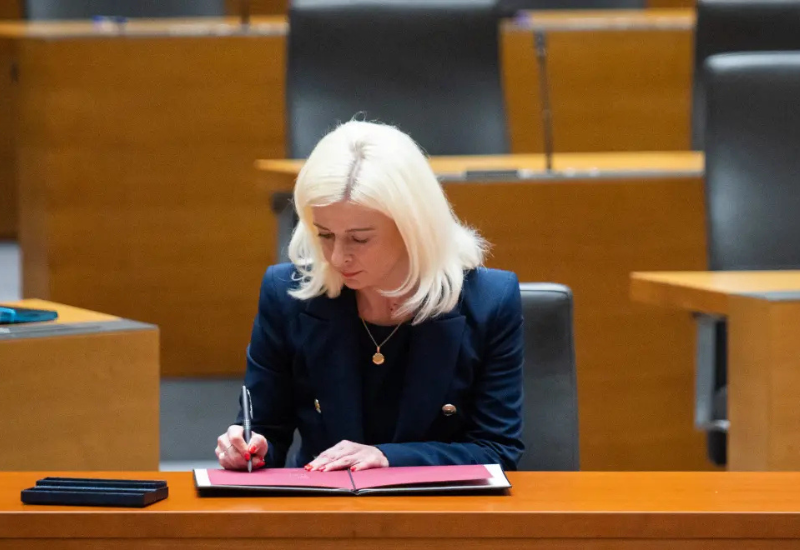
Ksenija Klampfer appointed digital transformation minister
Ksenija Klampfer, the labour minister in the 2018-2020 minority centre-left government of Marjan Šarec, has been appointed new minister of digital transformation. She succeeds Emilija Stojmenova Duh, who resigned in late September in the wake of an ethics breach, CE Report quotes The Slovenia Times.
After being sworn in on 17 December, Klampfer listed securing internet in white areas, the creation of a new national cloud and drafting an umbrella law on digital transformation as her priorities.
In her hearing before the parliamentary Home Policy Committee in early December, she announced she will close down a controversial scheme for the distribution of free laptops on loan because the mechanism has turned out to be too cumbersome and slow.
Criticism over the lack of transparency in the €6.5 million purchase of 13,000 laptops for the scheme was one of the reasons for her predecessor to step down, along with the scandal ensuing after the government car carrying her was caught using blue emergency lights in Austria unlawfully.
Klampfer, 48, graduated from the Maribor Faculty of Law in 2000 and then completed her master's thesis at the same law school. She also passed the bar exam.
She has been working in the civil service since. She served as a state secretary at the Public Administration Ministry (2017-18) during the centre-left government of Miro Cerar and then as labour minister under the Marjan Šarec government in 2018-2020.
After Šarec stepped down as prime minister in early 2020 in the hope of triggering a snap election she refused to support her liberal SMC party in joining an emerging government formed by Janez Janša. She quit the party but served as deputy director general at the Public Administration Ministry during the Janša government.
In June 2022, not long after the last general election, she came to work at the Digital Transformation Ministry, where she has stayed until now, serving as secretary general.
Suggesting her for the job of digital transformation minister, Prime Minister Robert Golob noted her knowledge of the portfolio and her previous experience in running the Labour Ministry.
Given her experience, Golob trusts her to bring digitalisation projects to tangible results, including that of a new supercomputer.
The ruling coalition parties also lauded her for the wealth of her experience and her past good work. As an expert they expect she will contribute to improvements and optimisation in the public administration and implementation of digital solutions.
Meanwhile, the opposition criticised her because of her position at the Ministry of Digital Transformation, which they said failed to produce the desired results since the start of the government term.























